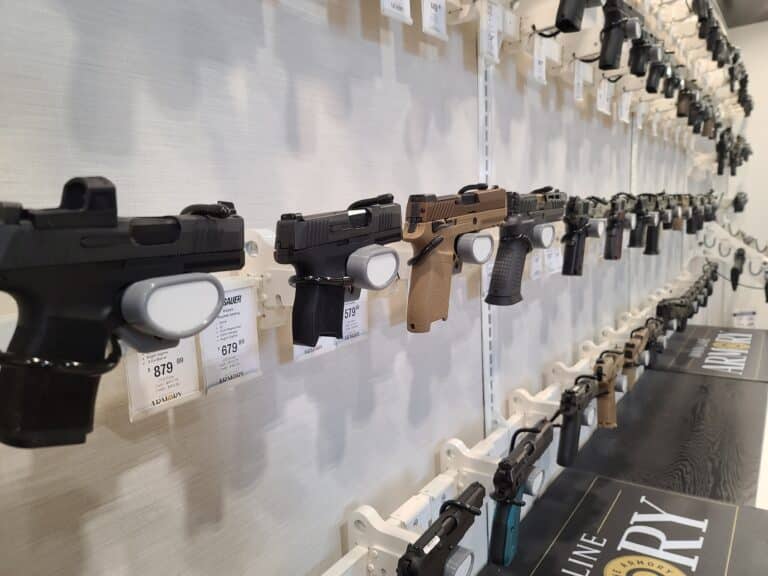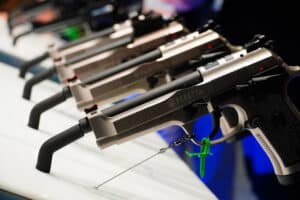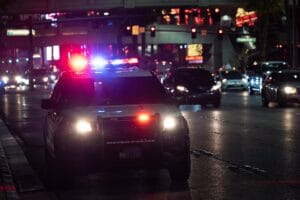Barring the dangerously mentally ill from owning guns does not violate the Second Amendment, according to a new federal ruling.
On Friday, US District Judge Thomas Johnston found the government can keep those who have been involuntarily committed because they are a threat to themselves or others from possessing firearms. He determined there is a longstanding tradition of limiting access to firearms for that specific group. As a result, it is not a violation of their rights to do so today.
“[B]ecause there is a historical basis for disarming individuals that have been determined to be dangerous to themselves and/or the public at large, § 922(g)(4) is constitutional on its face,” Judge Johnston wrote in US v. Gould.
The ruling adds another clarifying point in the ongoing effort of federal courts to define the edges of Second Amendment protections after the Supreme Court instituted a new test for gun laws last year. It represents another loss for those who have challenged prohibited persons laws. While gun-rights challenges have seen far more success since the Court handed down New York State Rifle and Pistol Association v. Bruen, there have been no successful challenges to bans on felons or the dangerously mentally ill owning guns.
Judge Johnston, who was appointed to the District Court for the Southern District of West Virginia by George W. Bush, argued the gun ban in question is more narrowly focused than the plaintiffs had claimed.
“In this case, Defendant’s framing is far too broad for the simple reason that § 922(g)(4) does not prohibit just anyone with a mental illness from possessing a firearm,” he wrote. “Instead, it prohibits only individuals’ who ha[ve] been adjudicated as a mental defective or who ha[ve] been committed to a mental institution’ from possessing a firearm. In turn, ‘[a]djudicated as a mental defective’ is defined as follows: (a) A determination by a court, board, commission, or other lawful authority that a person, as a result of marked subnormal intelligence, or mental illness, incompetency, condition, or disease: (1) Is a danger to himself or to others; or (2) Lacks the mental capacity to contract or manage his own affairs.”
He emphasized it only addresses “firearm violence by individuals who have been determined to be a danger to themselves or others—not firearm violence by those who simply have any kind of mental illness.”
He judged that specific aspect of the law against the Bruen standard, which requires any restriction on an individual’s right to keep and bear arms to be rooted in a historical tradition that dates back to the Founding. He noted there weren’t any identical bans on the dangerously mentally ill owning guns at the Founding.
“[T]he Government does not rebut Defendant’s contention that a formal regulation prohibiting the possession of firearms by the mentally ill did not exist at the time the Second Amendment was enacted,” Judge Johnston wrote. “Nevertheless, the Government suggests that the absence of historical statutory prohibitions on firearm possession may have been the consequence of the fact that ‘in eighteenth-century America, justices of the peace were authorized to ‘lock up’ ‘lunatics’ who were ‘dangerous to be permitted to go abroad.'”
However, Judge Johnston said there was other persuasive evidence that keeping firearms away from the dangerously mentally ill was a widespread practice at the Founding.
“The Government also cites the Address and Reasons of Dissent of the Minority of the Convention of the State of Pennsylvania to Their Constituents, another “highly influential” “precursor” to the Second Amendment in support of its position. That Address notes that at the time of the Second Amendment’s ratification, citizens were excluded from the right to bear arms if they posed a “real danger of public injury.”
Ultimately, he concluded there was a compelling historical tradition of barring those proven to be a threat to themselves or others from owning guns.
“When the Heller Court interpreted the Second Amendment, it reviewed history and tradition from England, the colonial and founding periods, and the nineteenth century to determine how that history and tradition informed or reflected the founding-era understanding of the Second Amendment,” Judge Johnston wrote. “Examining these same kinds of sources to identify the historical justification for §922(g)(4) reveals one controlling principle that applies to each historical period: dangerous persons could be disarmed.”






